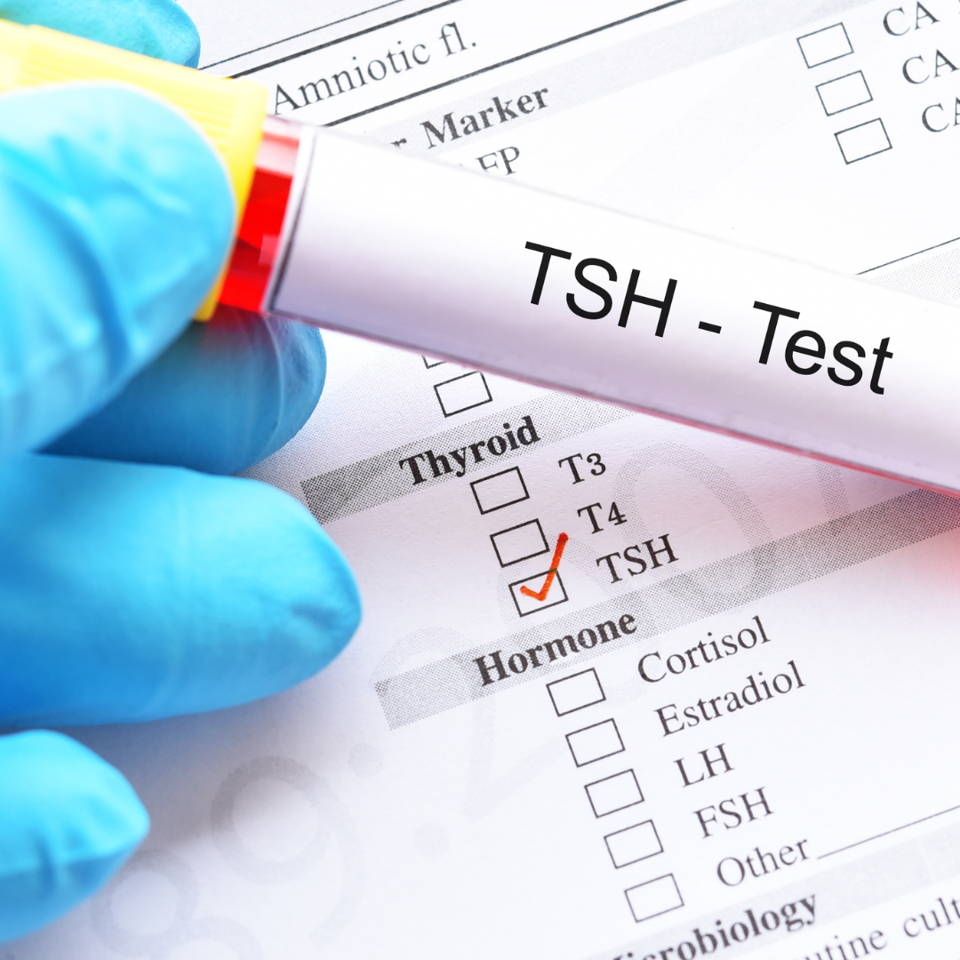"After over twenty years on Levothyroxine...I have more energy and my temperature is rising from the 95’s to upper 97’s and some 98’s. I can tell on the higher temp days I feel much better!" - Teresa

👉 If you have hypothyroidism and take thyroid medication, but you're continuing to suffer from symptoms including:
Fatigue
Weight gain
Brain fog
Cold hands and feet
Cortisol belly
You’re not alone. Thyroid medication is designed to replace hormones, but it doesn’t fix the underlying imbalances that keep your thyroid from working properly. If you’re still struggling, here’s why—and what you can do about it. 👇

Most doctors rely on TSH (thyroid-stimulating hormone) levels to diagnose hypothyroidism and adjust medication, but TSH doesn’t measure active thyroid hormones (T3 and T4)—the hormones that actually fuel your metabolism. This means you could have “normal” TSH levels but still struggle with low thyroid function because the test fails to measure how well your body is actually using thyroid hormones. To make matters worse, your doctor could increase thyroid medication based on TSH even though you’re already overmedicated.

Thyroid meds replace hormones, but they don’t restore the essential minerals your thyroid needs to function properly. Minerals like iodine, selenium, and sodium are the raw materials your body uses to produce thyroid hormones and convert inactive T4 into active T3. If you’re low on these key nutrients, your thyroid can’t function at its best—even if you’re on medication.

If your body temperature is below 98.6°F, your thyroid isn’t fully working—even if you’re on medication. Your body temperature helps reveal whether your body is actually using thyroid hormones. Low body temperature is one of the most reliable signs of hypothyroidism and adrenal dysfunction, yet most doctors completely ignore it. If your temperature is low and your symptoms aren’t improving, it’s time to listen to your body, not just your lab results.

Many people take T4-only medication (like levothyroxine) or NDT (natural desiccated thyroid which is mostly T4), but your body must convert T4 into active T3 for it to work. This conversion requires key minerals. If conversion is poor, or if stress causes high Reverse T3 (RT3), your body may be blocking thyroid hormone instead of using it—leaving you with hypothyroid symptoms no matter how much medication you take.

If your thyroid medication dose is too high, it can trigger high cortisol, leading to diet-resistant weight gain, fluid retention, fatigue, sleep issues, hair loss, mood swings, heart palpitations, cravings for junk food, sore muscles, and feeling worse after exercise. Many people assume they need more medication, but too much can actually make symptoms worse instead of better.

The good news? You don’t have to keep guessing.The HypoHero Thyroid Protocol helps you take control of your thyroid health by restoring essential minerals, detoxing harmful halogens, and improving low body temperature—so your thyroid works better, with or without medication.
Take the Thyroid Quiz now to uncover what’s really going on with your thyroid and start your journey to feeling better

I've been [following the HypoHero Thyroid Protocol] for a month now and levothyroxine for 5 years. I am starting to notice the benefits. I'm finally losing pounds slowly, energy, happier, my skin is not as dry, less hair falling out...amazing so far!
Kandi B.
Feeling Great!
I knew there was something wrong but failed to get results from levothyroxine. Since starting the [HypoHero Thyroid Protocol], I haven’t felt this good in ten years! It’s saved my life!
Cori J.
I have been diagnosed hypothyroid since I was 22. I’m turning 70 this year. Levothyroxine does not work for me. [Following the HypoHero Thyroid Protocol] I sleep a good 5-6 hours straight now, huge win for me as I was 2 hours on/off for years. Best part is the weight just started melting off. I still feel hypothyroid but I feel more like me. Over time, I believe it will all settle out. I’ve released 12 pounds I never thought I could. Effortlessly. Thank you for your guidance. 😍
Suzan T.

Take the Thyroid Quiz to find out what’s really going on with your thyroid health.
Take the Thyroid Quiz!